|
|
||
|
Pro Tools
FILMFESTIVALS | 24/7 world wide coverageWelcome ! Enjoy the best of both worlds: Film & Festival News, exploring the best of the film festivals community. Launched in 1995, relentlessly connecting films to festivals, documenting and promoting festivals worldwide. Working on an upgrade soon. For collaboration, editorial contributions, or publicity, please send us an email here. User login |
Interview with Filmmaker Bertrand Normand at 74th Cannes Film Festival
Award-winning French director and producer Bertrand Normand is a graduate of Canada’s Vancouver Film School. In 2016, Normand founded the production company Les Films du Jour Prochain, which has produced the short films "The Taste of Ginger", by Jean-Robert Thomann and "Iskra", by Adrian Replanski, both of which won awards at the 2021 French Riviera Film Festival. His short film, "The Photographer", has participated in more than seventy festivals internationally and obtained thirteen awards. He is currently developing and producing multiple narrative films and feature-length documentaries internationally, including his recently completed documentary "The Rocking Baritone". Bertrand Normand and I met at the 74th annual Cannes Film Festival for an interview. Here is what he had to say:
Can you tell us how you started your entertainment career? Did you always know you would make films? BERTRAND: I have known I wanted to make films ever since I was a child. However, until I was a young adult it was more a dream than a serious plan. When I finished high school, I decided to study business, but I did most of my internships in film production companies, which was a way of taking my first steps into the world of films. Once I graduated, I did my military service as the audiovisual attaché of the French Embassy in the Philippines. My task was to organize French film festivals, training workshops for Filipino professionals in such fields as screenwriting and acting, bringing together French and Filipino producers to favor film co-productions between our countries. It was a great life experience and one that certainly strengthened both my knowledge of film production and my will to make films. After that, I decided to at last study filmmaking, which I did at the Vancouver Film School in Canada. It was my best year ever. There I directed my first short films and my first documentary, and it became obvious to me that I didn’t want to do anything else than making films. After finishing school, I came back to France and started doing this professionally. My first work was a documentary about a Buddhist monk in Burma which I made with an anthropologist who was a specialist of that matter. I loved both the subject and the process of making this film, yet what struck me was how difficult and long it was to raise the funding. It took two years to complete this project. This taught me that patience and perseverance are necessary in this job, and it taught me that finding the resources and securing the means to make a film is the hardest part, harder than making the film itself. Yet I decided to continue.
You are an editor, writer, producer, camera operator and director. Is it necessary to have multiple talents to be a filmmaker these days? BERTRAND: Being a filmmaker means leading a creative team made of many people who are all specialists in their own areas: the writer, the DOP, the camera operator, the editor, and many others. It also means collaborating closely with the producer. To work well with each of these professionals and make them do their best, a filmmaker needs to know what to expect from them and what can be demanded from them. The easiest way of knowing this is to somehow know these jobs. The best case-scenario is when a filmmaker works with specialists who are all better than them in their own fields, yet it helps a lot when the filmmaker knows these fields. As for me, it so happens that I love writing and I want to make films from screenplays which I write or in the writing of which I participate. I don’t always find it easy to write well or at least in a way which totally satisfies me, so writing and rewriting is usually the longest creative part of my narrative projects. My intention in the future is to collaborate with screenwriters with whom I can work faster and reach more ambitious results, yet the challenge is to find the right collaborators, meaning those with whom I share a common universe and a common sensitivity. I am also a camera operator and I know how to edit a film, which both help a lot when I deal with projects that have very limited funding. I have been the operator of all my documentary films. The documentary genre involves an immediacy, the need to react at once in certain situations, which makes it preferable for the director to operate the camera him/herself and not lose time explaining to the operator what he or she wants. However, when I direct a narrative film, I’d rather not operate the camera myself so that I can focus on scrutinizing the actors and directing them. Yet, I value the fact that I have some experience as a camera operator, because I know what to ask the operator very precisely. The same is true for editing. Editing is a very creative and crucial step in the making of any film and it is very important for a filmmaker to know that field. Nevertheless, I love collaborating with experienced editors and I have always noticed that the best results are reached when two minds are working together rather than just one. As for producing, the reason I am doing it is because it has been the only way to make some of my projects come true. Indeed, the producers with whom I was collaborating have either gone bankrupt or not managed to raise the necessary funds or secure distribution for these projects, so I have had to do it myself. This has meant creating a production company and devoting a lot of time to doing the job of a producer. I prefer creating, but being a producer is often the only way for me to carry out a project and allow me to create.
You have a production company called Les Films du Jour Prochain. What kinds of films does your company specialize in making? BERTRAND: My production company, Les Films du Jour Prochain, was first meant to help me produce my own films, such as the short narrative "The Photographer" and the documentary "The Rocking Baritone". However, my partner Laurent and I have decided to produce films by some other directors whom we know well and whose works we value: Jean-Robert Thomann ("The Taste of Ginger"), Adrian Replanski ("Iskra"), Marc Charley ("The World of Lovecraft", in progress). So far, we have focused on short narrative films and documentaries, but we intend to produce full-length feature films and possibly series as well.
You have written and directed some award-winning films in the past few years. Can you tell us about your recent works “The Photographer”, “Ballerina”? BERTRAND: "The Photographer" is my latest short narrative film. It is a fantasy thriller shot in the gardens of the Versailles Palace. It took a very long time to make it, because just getting the authorization to film in Versailles took more than one year. Securing the funds to shoot it also turned out to be a long process and eventually we managed to complete the film thanks to a crowdfunding campaign. So far, it has been selected for over 70 festivals around the world and has got 13 awards. Since then, I have directed a new short narrative film, "Letters to Platonov", a romantic comedy which was shot near the city of Kazan in Russia and which I hope to finish soon. As for "Ballerina", it is an older project, which I made in the mid-2000s. This documentary follows the destinies of five ballerinas of the Mariinsky Ballet (also known as the Kirov Ballet) in Saint-Petersburg. Their lives weave together to tell the story of the Russian Ballerina of our time, from her beginnings as a child in dance school to the peak of her glory on the world stages. What made me decide to make this film is that I had been mesmerized and inspired by the city of Saint-Petersburg and the Mariinsky Theatre the first time I was there in the 90s. I wanted to show what had come of the art of ballet, which used to be the foremost shown feature of the Soviet Union in the Western world, and more precisely what had come of the ballerinas, who were the main muses of both the late Russian Empire and the USSR, in the present day. It took me three years to shoot and complete this documentary. Securing an authorization to film at the Mariinsky Theatre and obtaining the trust of the ballerinas whom I had chosen as my characters was the main challenge of this project, but once it was met, I greatly enjoyed making this film, both as a life experience and as an artistic endeavor. Once finished, "Ballerina" was selected to be part of many festivals and was chosen "best of festival" at the Vancouver International Film Festival, the Palm Springs International Film Festival and the Washington DC International Film Festival. Then it was released in movie theatres in many countries, it was broadcast on many networks, and it was distributed on Netflix for several years. This film paved the way to future documentaries about other Russian artists, the latest of which, "The Rocking Baritone", I just finished.
You also recently produced two award winning films. Can you tell us about “The Taste of Ginger” and “Iskra” and what inspired you most about these stories? BERTRAND: I recently produced two short narrative films which have just started their festival tours, "The Taste of Ginger" by Jean-Robert Thomann and "Iskra" by Adrian Replanski. I have known both directors for many years, I really like their past films and I was glad to produce their new works. Jean-Robert is a French filmmaker who has lived in Taiwan for more than twenty years. He has made many films there, both documentaries and short films. When I read his latest script, I immediately liked it, I thought the story was very moving and universal and I was thrilled by the challenge of producing a musical drama sung in Chinese. We searched for some funding in France and got a prestigious and competitive grant from the National Center of Cinema, then the TV channel ARTE contacted us and offered to commission the film. This allowed us to fully fund the project. First, we had the music scored by two very good composers, Lien Peiju and Ric Huang, the latter being also the main actor of the project. The film was entirely shot in Taipei a few months after the Covid pandemic started. Fortunately, we managed to shoot all the sequences in the planned locations without major obstacles. Jean-Robert edited the film himself. Eventually I was more than pleased with the finished work and so was the channel ARTE. "The Taste of Ginger" will be broadcast multiple times on this network, but we hope to have it shown elsewhere. It has already been selected to be part of several festivals, both in Europe and Asia, and hopefully it will participate in many more. Adrian Replanski is an Argentinian-Canadian filmmaker who was one of my classmates at the Vancouver Film School. Ever since we got acquainted, I have been impressed by his ideas and talent and I was glad to produce a short film which he directed last year in the framework of a 48 hours’ competition. This project paved the way to another short film which Adrian directed and which I produced in the framework of another competition, “Film 7 Days”, organized by the city of Kazan in Russia: "Iskra". Adrian’s script was selected along with 9 other scripts among many which were submitted. What I liked about it is that it depicts a world which could very well belong to the past, the present or the future in that it artfully blends elements which we associate with those different times. This makes the story very universal. Besides, there is a strangeness about it that is very peculiar to Adrian’s universe and that I particularly like. The rule was to shoot and edit the film in seven days. We shot it simultaneously in Normandy and Tatarstan, where we had a second unit, which we had to monitor long-distance. In the end, we got the third prize of the competition. Then we polished the editing and created a new, slightly longer version of the film, which we have started sending to festivals.
You won awards for these two films at the French Riviera Festival. Can you tell us about that? BERTRAND: Both "The Taste of Ginger" and "Iskra" have been selected to be part of the French Riviera Film Festival. It is the first festival in which they have participated. I already knew about this festival, since my latest short film participated in it a couple of years ago, and therefore I was glad that these new works were part of it. The French Riviera Film Festival focuses on short films, and I have noticed that it usually picks a lot of good ones, which makes the experience of attending it enjoyable for viewers. Besides, it is very well organized and has exceptionally efficient communication, which is valuable for any films that are selected. Moreover, it runs parallel to the Cannes Film Festival, which is a very attractive and useful feature. This year, the screenings have been online due to the pandemic. The advantage is that people have been able to attend them worldwide. We were thrilled that "The Taste of Ginger" got both the best drama and best actor awards. I am personally proud to have produced this film, I think it is quite remarkable and I was hoping it would get some recognition, which it did in its very first festival. I am also glad that Ric Huang’s performance was hailed. He is a famous pop singer and songwriter in Taiwan, but with "The Taste of Ginger" he has proven that he is a great actor as well. It was also terrific news that "Iskra" was awarded best sci-fi/horror film. It tells much about director Adrian Replanski’s talent as a creator of worlds and particular atmospheres. I intend to collaborate further with both him and Jean-Robert Thomann, the director of "The Taste of Ginger", and these awards only strengthen our desire and confidence to do so.
You attended the 2021 Cannes Film Festival? How was it this year post covid? And why is Cannes important to attend as a filmmaker? BERTRAND: I attended the Cannes Film Festival this year. I do it as often as I can because I have understood with time that the Cannes Film Festival is a privileged moment to meet with film industry people from all over the world, to make on-going projects move forward and to bring out new ones. Making films and finding the means to make them depends a lot on whom one knows, therefore this kind of opportunities to strengthen contacts and make new ones should not be bypassed. Besides, there is a particular atmosphere that makes attending the festival a very special, magical experience. It gives a lot of energy and energy is the most important feature to make film projects come true! This year, there have been fewer people than usual, around one third of the usual number showed up, which is quite a lot and made it completely worthwhile. Yet the market area seemed kind of empty the second week. It should also be said that it rained little as compared with usual, but that’s because it was in July and not in May.
You just completed a new film, “The Rocking Baritone”. Can you tell us about that? BERTRAND: I have just completed my latest documentary, "The Rocking Baritone". It has been a very long project to carry out, since I started shooting it in 2013! After making "Ballerina", then "Tchaikovsky on the Road", focusing on world famous conductor Valery Gergiev, and "Stars of the White Nights", about Saint-Petersburg’s summer music festival, I wanted to tackle the art of opera in Russia in a new documentary and was wondering how I should do it. I had heard bass-baritone Evgeny Nikitin perform on stage as early as in 2003 and I had been impressed by his voice and personality, but only in 2011 did I make his acquaintance and did I get to know him personally. It then immediately struck me as obvious that he should be the subject of this new documentary I wanted to make. Indeed, Evgeny is a very uncommon opera singer with quite fascinating features: he also happens to be a rock musician, his body is completely covered with tattoos, he used to be a hooligan and he is one of the greatest performers of Wagner’s operas although he is Russian. I decided to just draw a portrait of him, I thought it was the right approach to make an interesting documentary for the viewers and one that would make the art of opera more accessible to a large audience. After getting his consent, I obtained the approval of the producer I was collaborating with at that time, the one who had produced "Tchaikovsky on the Road". He started searching for funds and I started shooting the film in parallel. Obstacles arose, as the producer got bankrupt and none of the broadcasters who had been approached decided to commission the project. So, I remained alone with my footage. At first, I convinced a few people to make donations so that I could keep shooting the film. This allowed me to travel a few times and shoot key sequences, mostly in Russia, but also in Spain, Belgium and the United States. Eventually I created my own production company, I ran a crowdfunding campaign, and I found a coproducer in Russia who provided the means to do the editing and the post-production. As a result, the film is now finished at last. We shall start sending it to festivals soon. What we are targeting is a theatrical release.
How do you get your films distributed and where can people see them? BERTRAND: Each film has its own life and its own distribution history. "Ballerina" participated in many festivals, it was released in movie theatres, it was broadcast on TV channels in various countries, it was available on Netflix for several years, it was also released on home video. The DVD can be ordered on Amazon or on the website of the US distributor, First Run Features. The film also is available on several platforms, including Tubi TV, Amazon Prime Video and Fandor. "The Photographer" participated in many festivals, then it has been distributed on several platforms, including Amazon Prime Video UK. "Tchaikovsky on the Road" has been both broadcast on TV and distributed on internet platforms. It is now available on Medici TV as well as on Amazon Prime Video US and UK.
What are your hopes for your company down the line? Where would you like to see it go in the next 5-10 years? BERTRAND: Les Films du Jour Prochain is currently producing 4 documentaries as well as 2 short films, which are all in progress. It is also developing a number of projects, including a full-length feature film. I hope that all the on-going projects will be completed and that each will find its audience. I also hope that we can produce more ambitious films with time. To make that happen, we intend to resort to international co-productions. Hopefully, in 5 to 10 years, we shall have produced several full-length feature films and possibly one or several series.
Interview with Vanessa McMahon. July 26, 2021
08.08.2021 | Vanessa McMahon's blog Cat. : Interview with Filmmaker Bertrand Normand at 74th Cannes Film Festival Interviews PEOPLE
|
LinksThe Bulletin Board > The Bulletin Board Blog Following News Interview with EFM (Berlin) Director
Interview with IFTA Chairman (AFM)
Interview with Cannes Marche du Film Director
Filmfestivals.com dailies live coverage from > Live from India
Useful links for the indies: > Big files transfer
+ SUBSCRIBE to the weekly Newsletter Deals+ Special offers and discounts from filmfestivals.com Selected fun offers
> Bonus Casino
User imagesAbout Vanessa McMahonThe EditorUser contributions |


















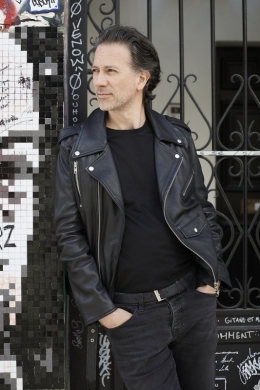


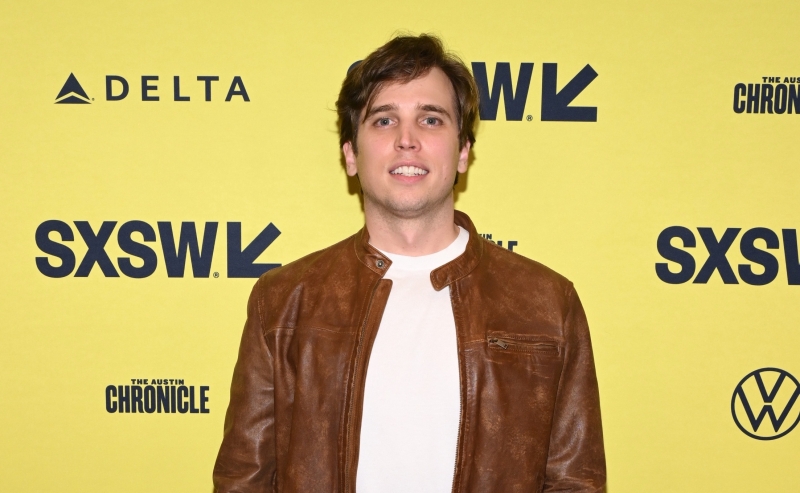

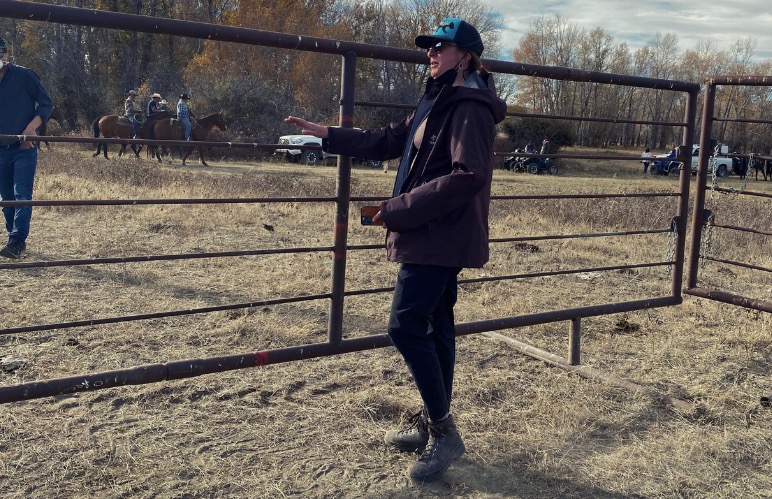
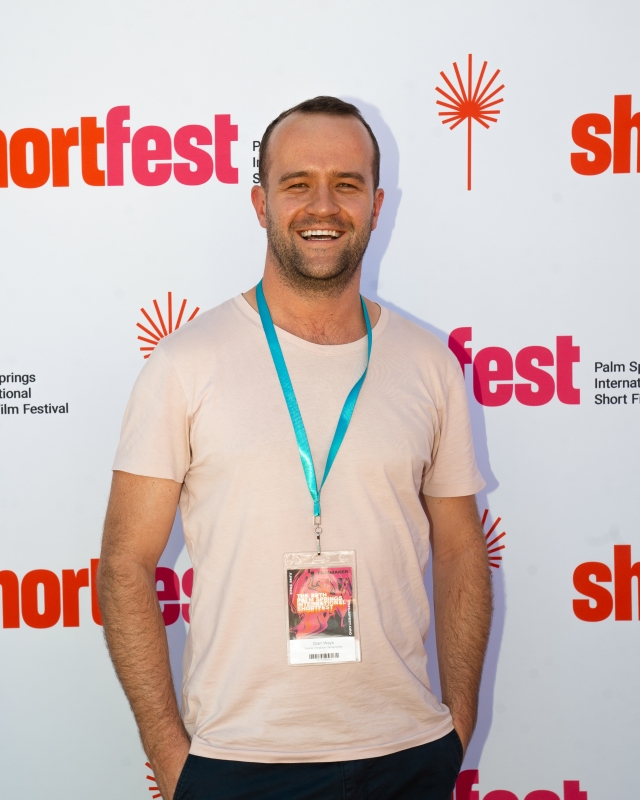
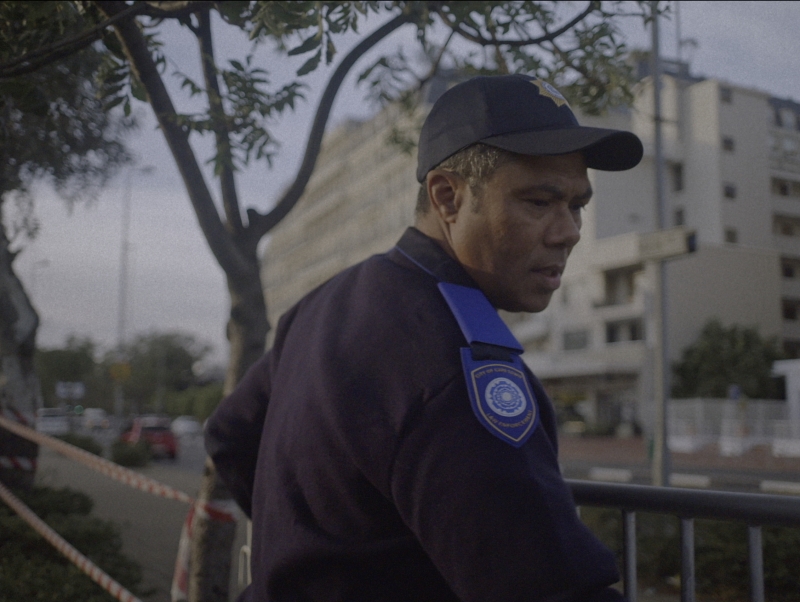
 McMahon Vanessa
McMahon Vanessa 


